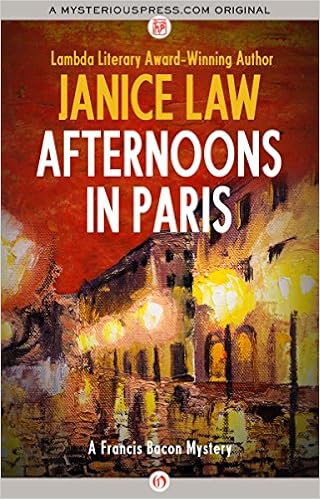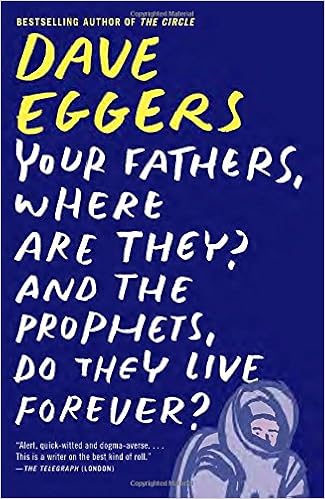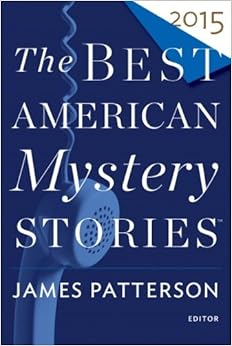Let's talk about lies.
It's a widely-held article of faith, particularly on the Left, that the Bush administration falsified intelligence to get us into the Iraq war. I don't completely subscribe to this, for reasons I'll go into. But the purpose of this post is to examine one of the more puzzling sideshows in the run-up to actual combat operations: the full-court press by Vice President Cheney's office to discredit Valerie Plame Wilson, a career CIA officer, and her husband Joe, a retired diplomat.
 |
| Valerie and Joe Wilson |
In discussing whether or not the Iraq intelligence was 'stovepiped,' an expression Seymour Hersh was the first to use, it might help to review, first, the culture of CIA, and secondly, the mindset of the Bush security team. Richard Helms, a former Director of Central Intelligence, once remarked that the DCI has only one consumer, and that he serves only one president at a time. In other words, the job description is to give the president the best available analysis of sometimes conflicting intelligence product, and reconcile any disagreements. State and Defense may have competing agendas, and they're free to make their own arguments, but the DCI shouldn't be swayed by policy differences. In practice, however, it's more about political survival. George Tenet, Bush's DCI, had extraordinary access to the Oval Office, and the president trusted his advice. The brute fact, though, is that you can't keep bringing your guy news he doesn't want to hear, or he's simply going to stop listening. Tenet wanted to protect his place at the table, and it led him to start shading or deflecting unwelcome truths. His own people at Langley were the first to realize he was insulating himself from failure. He couldn't afford to have Bush turn a deaf ear.
We hang on prince's favors, Wolsey tells us,
but when we fall,
we fall like Lucifer,
never to hope again.
 |
| George Tenet |
Tenet, to be fair, had no mean adversaries, chief of them Donald Rumsfeld, the Secretary of Defense, and Rumsfeld had a deep bench to draw on. He set up a spook shop at the Pentagon, run by an undersecretary named Doug Feith, who reported personally to the SecDef. (As an aside, and because I can't resist, Gen. Tommy Franks, later commander of the forces in Iraq, was to characterize Feith as "the dumbest fucking guy on the planet.") The point of the exercise is that they didn't trust Langley, so they mined the same raw data and then came to a radically different conclusion, one more to the liking of the Cabinet war party headed up by the vice president.
Both interpretations of the evidence turned on the trustworthiness of the clandestine Iraqi source codenamed CURVEBALL. CIA considered him a self-aggrandizing phony and his stuff utterly unreliable, but DoD was ready to cut him more than a little slack. CURVEBALL gave legs to the story that Saddam Hussein was stockpiling chemical and biological agents, the so-called WMD. There's an apposite quote from the late James Jesus Angleton, legendary chief of CIA counterintelligence (and Angleton will return, in a subsequent blog entry). "Not every story we wish to be true," he said, of a KGB deception, "is necessarily false."
 |
| Rafid al-Janabi a/k/a CURVEBALL |
Which brings us to the notorious episode of the Nigerian yellowcake. A report surfaced that Saddam Hussein had tried to buy enriched uranium from Niger, which could be turned into fissionable material for a nuclear weapon. CIA decided to send Joe Wilson, a former ambassador, who had experience and connections in Africa, to check it out. If true, here their smoking gun. It's an axiom, in intelligence, that you can't prove a negative, but Wilson didn't find anything to support the story. So we've got an ambiguous result. Wilson couldn't say for sure the Iraqis
didn't try to acquire yellowcake, he could only say there was no evidence that they
had, in fact, tried. "Highly doubtful," he told CIA.
The next question in this little drama is how the Nigerian yellowcake found its way into the State of the Union address. CIA fact-checks a draft of the speech, and Tenet says the offending lines have to come out. They do. But then, by all accounts, the vice president and the SecDef insist they go back in. In the event, Bush utters the fatal words, "Saddam Hussein recently bought significant quantities of uranium from Africa." Joe Wilson, watching the president on television, goes WTF? Disgruntled, or disappointed, or just plain pissed off, he writes an Op-Ed that comes out in the
New York Times, disputing the whole nine yards. There's nothing, he says, to suggest any truth to this yellowcake moonshine.
 |
| State of the Union |
You with me so far? Because it gets murkier.
Now, to coin a phrase, the fur hits the fan. Dick Cheney is reportedly ripshit. Joe Wilson, in his opinion, has stabbed them all in the back. You don't, for Christ's sake, take your grievances to the God damn
New York TIMES. Joe's gone over to the enemy. At this point, it's not a dispute about the intelligence, and this is where I put in my own two cents. Honest men can disagree. I stepped on my dick about the Soviet invasion of Czechoslovakia, in 1968. I didn't think they'd pull the trigger, and I was proved wrong. Older, wiser heads were right. This isn't by any means an exact trade. You make the best guess. In this case, Cheney's being dishonest. It's not really about Niger. It's a grudge match. Joe Wilson's in his sights.
The rubber meets the road. Joe Wilson's wife, Valerie, is a serving CIA officer. She's worked covert, overseas. Her present post is at Langley, in non-proliferation. Scooter Libby, the vice president's chief of staff, blows Valerie to a Washington columnist, Robert Novak. The deception
they're floating is that Valerie persuaded the powers that be to send Joe to Niger
with the express purpose of spiking the yellowcake rumor.
I told you it was complicated.
Let's, for the moment, ignore the facts.
 |
| Cheney and Rumsfeld |
What's the narrative Cheney's suggesting? First, that CIA's a hotbed of Lefties, who don't whole-heartedly
believe in a war with Iraq. Joe Wilson's another ComSymp. His wife gets him the gig. The two of them are in bed together, in more ways than one. Bottom line, Valerie is soft on Iraq, and so is Joe. Between the two of them, they wanted to sabotage the war effort.
There are a couple of things wrong with this picture.
Valerie didn't pick Joe for the mission, and Joe didn't have a horse in the race. We're talking apples and oranges. Valerie, by her own account, really liked her job, and believed in it. I take her at her word.
Duty is, perhaps, a careworn expression.
What was the point? Or the
object. What is Cheney trying to accomplish, and who would care? Who'd even understand the Byzantine reasoning behind this stratagem? Nobody outside the Beltway. Cheney's an inside guy. He doesn't come right out and say, Joe Wilson's soft on Iraq. He moves in on the oblique. Which might lead us to believe his target audience wasn't the general public at all, but Congress, particularly the ranking members of the armed services committees. These are the people who'd vote on any Iraq war resolution, and the vice president wants their votes in the bag. Anything else would be noise.
Push comes to shove, sacrificing Valerie Plame's career or Joe Wilson's reputation is small potatoes. They get thrown under the bus to Baghdad.
Full disclosure.
I've met Valerie Wilson since she and her family moved to Santa Fe, and have had some passing conversations with her– not, as it happens, on these particular questions. In their own words, here's a recent article Valerie and Joe wrote for THE GUARDIAN.
 No, not that one, this one:
No, not that one, this one: 
 Yes, my favorite gay artist adventurer is back in Janice Law's "Afternoons in Paris". Francis is 18 and in the City of Lights, and very glad to be there after the craziness of Berlin (read Janice's "Nights in Berlin": the book and David Edgerley Gates' review). Now he's on his own, working for a decorator/designer by day (the somewhat susceptible Armand), visiting galleries with the motherly Madame Dumoulin, and cruising the city by night with the totally unreliable Pyotr, a Russian emigre who, like Francis, has a taste for quick hook-ups and rough trade.
Yes, my favorite gay artist adventurer is back in Janice Law's "Afternoons in Paris". Francis is 18 and in the City of Lights, and very glad to be there after the craziness of Berlin (read Janice's "Nights in Berlin": the book and David Edgerley Gates' review). Now he's on his own, working for a decorator/designer by day (the somewhat susceptible Armand), visiting galleries with the motherly Madame Dumoulin, and cruising the city by night with the totally unreliable Pyotr, a Russian emigre who, like Francis, has a taste for quick hook-ups and rough trade.



















 Gayle Lynds has done it to me again. Her new thriller, The Assassins, a July release from St. Martin's Press, opened, grabbed me by the throat and kept me up late two nights in a row. As much as I love sleep, this is a superb read and one missing a few hours of sleep over.
Gayle Lynds has done it to me again. Her new thriller, The Assassins, a July release from St. Martin's Press, opened, grabbed me by the throat and kept me up late two nights in a row. As much as I love sleep, this is a superb read and one missing a few hours of sleep over.












